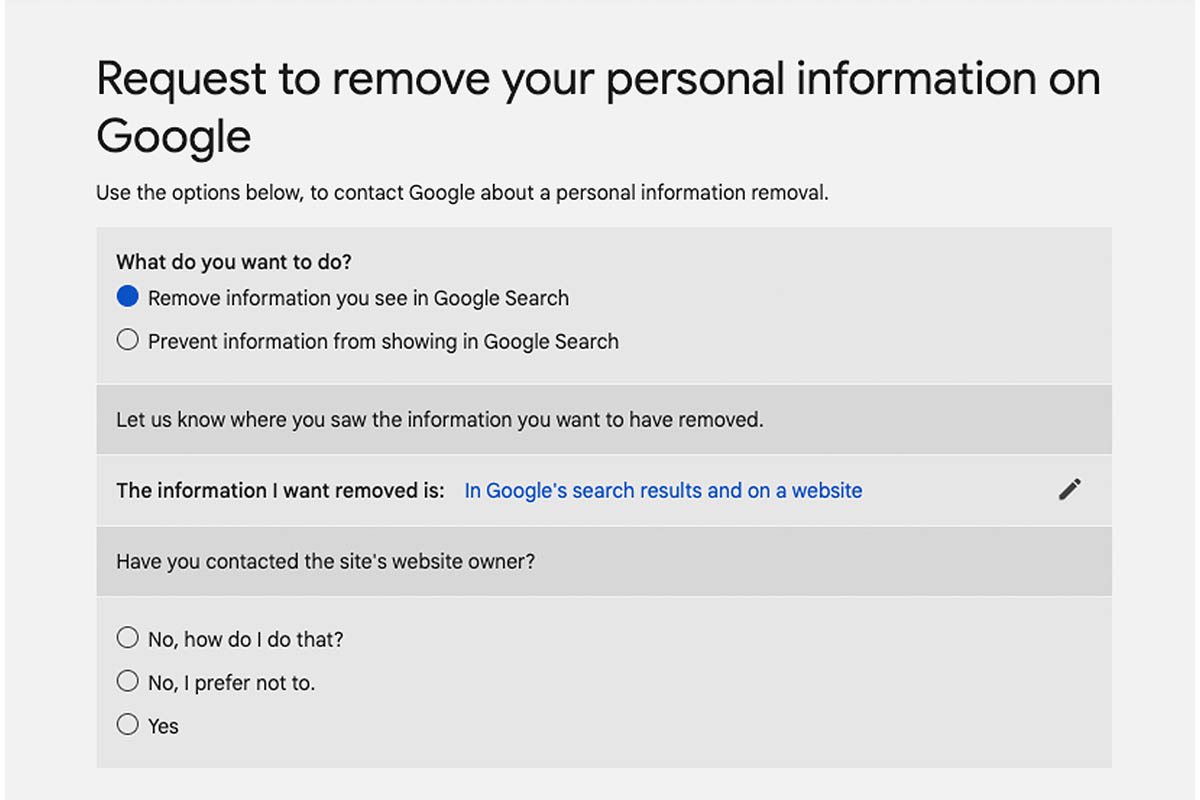It’s pretty easy to get very personal information about almost anyone through a simple internet search (try it on yourself and be instantly horrified).
Thankfully, Google now lets users request the removal of personally identifiable information that appears in Google Search…which isn’t the entire internet, but is a primary source of web browsing and searching.
While the tech giant already had some policies in place for info removal due to doxxing or potential financial fraud, the new parameters take privacy a step further.
As Google’s blog notes: “Under this new policy expansion, people can now request removals of additional types of information when they find it in Search results, including personal contact information like a phone number, email address, or physical address. The policy also allows for the removal of additional information that may pose a risk for identity theft, such as confidential log-in credentials, when it appears in Search results.”

This isn’t a free get-out-of-the-Internet card: Google will still monitor removal requests and “evaluate all content on the web page to ensure that we’re not limiting the availability of other information that is broadly useful, for instance in news articles.” And any information that’s part of a public record on a government site or via official sources will also not be removed.
This is the form you’ll use to remove those Search results.
As TechCrunch notes, you submit a removal request and you’ll get an automated email confirmation. Google then reviews the request and possibly asks for additional information; if the request is denied, the company will give you a brief explanation detailing why.
Google’s latest move follows a new policy that enables people under the age of 18 (or their parent or guardian) to request the removal of their images from Search results.
Thanks for reading InsideHook. Sign up for our daily newsletter and be in the know.

















